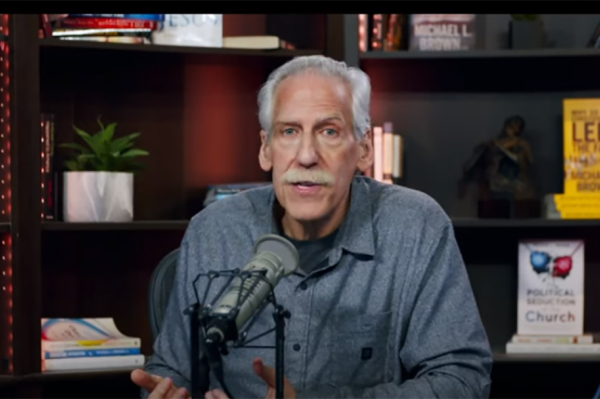How to find the sameness you long for

“I wish everything would just stay the same.” This is a common sentiment and usually indicates that life is going well — work is good, the family is happy, your health is better than ever, and no worries are on the horizon. But live long enough, and change is inevitable. The “sameness” you longed for falls prey to life’s uncertainties and tragedies. Nothing is more disorienting to one’s sense of self than losing those things that “hold us together.”
“Sameness” has a fascinating history in its relationship to one’s identity and sense of self. “Identity” derives from the Latin word identitas, which means “the same” or “sameness.” The word was first used in English in the 16th century and originally referred to the quality or condition of being the same or identical.
Over time, the meaning of “identity” evolved beyond the concept of sameness to include notions of individuality and distinctiveness. In philosophy and psychology, “identity” signifies a sense of self-sameness and the recognition of one’s individuality.
“Self-sameness” is a term often used in philosophical and psychological contexts to describe the continuity and consistency of one’s identity over time. It refers to the idea that an essential core or essence remains unchanged despite changes, growth, or external influences, providing a sense of personal identity. Self-sameness is the anchor of the soul.
Self-sameness has been an essential concept in the history of psychology, considered critical to one’s stable sense of self. Renowned psychologist Erik Erikson (1902–1994) is famous for his theories of psychological development, describing how individuals navigate social and emotional challenges across their lifespan, from infancy to old age. According to Erickson, “self-sameness” refers to the feeling of continuity within oneself over time despite changes in roles, relationships, and circumstances. It is central to forming a cohesive and stable sense of identity.
Various philosophers and psychologists, including John Locke, Soren Kierkegaard, Carl Rogers, William James, Rollo May, and Alfred Adler, have explored and defended the concept of self-sameness and the need for it.
However, identity and self-sameness faced significant challenges in the United States during the mid-20th century as philosophical, psychological, and theological paradigms shifted. Thinkers began questioning views of personal identity in favor of more fluid, relational, and socially constructed notions of self.
Current critical theories of personal identity challenge the idea that each person has a single, unchanging “true self.” Instead, they suggest that identity is flexible, constantly changing, and shaped by social influences. There is no unchanging essence or self-sameness that anchors the self.
Current theories of personal identity do not believe there is a “real you” that anchors one’s sense of self through life’s changes and tragedies. Instead, they see the self as something we create and recreate. Being “authentic” doesn’t mean finding a fixed version of yourself but embracing one’s fluidity.
Even the sameness of God and consistency of Scripture have become “fluid.” Traditional historical interpretations of the Bible are considered flawed or incomplete, lacking current representation of new forms of identity and self-expression. Traditional interpretations are believed to be shaped by patriarchal societies where rigid identity roles were the norm. This reflects the cultural understanding of when it was written and doesn’t reflect the modern sense of identity. We are told we just can’t read the Bible the same way the first-century Christians did. Bible consistency and psychological sameness are an archaic hermeneutic for the modern self.
Contrarily, the New Testament consistently emphasizes the unchanging and enduring nature of Scripture, affirming its permanence and reliability across time. Jesus declared that not even the smallest part of the Law will pass away until all is fulfilled (Matthew 5:18) and assured His followers that His words will never fade, even as Heaven and earth pass away (Matthew 24:35). Scripture is described as unbreakable (John 10:35) and eternal, outlasting the transient nature of human existence (1 Peter 1:24–25). Its divinely inspired purpose remains constant, equipping believers for every good work (2 Timothy 3:16–17). Rooted in the unchanging character of God, who is “the same yesterday, today, and forever” (Hebrews 13:8), the Bible is safeguarded against alteration, with stern warnings against adding to or subtracting from its content (Revelation 22:18–19).
These teachings underscore the steadfastness of God’s Word as a guiding truth for all generations and stability for one’s sense of self and identity.
The unchanging nature of God is a central theme in the Bible, affirming His steadfastness and reliability across time. Scripture declares that God is not like humans, who change their minds or break promises (Numbers 23:19; 1 Samuel 15:29). His plans and purposes are eternal and unshakable, enduring through all generations (Psalm 33:11; Isaiah 46:9–10). Unlike the fleeting nature of the world, His Word and character remain constant (Isaiah 40:8; Matthew 24:35). From creation to eternity, God is the same, as reflected in the unchanging reign of Jesus Christ (Hebrews 13:8; Revelation 1:8). His steadfast love and faithfulness assure humanity that His promises are firm, providing a foundation for hope in a world marked by uncertainty and “fluidity” (Malachi 3:6; James 1:17). This immutability is not only a theological concept but a source of profound comfort, reminding believers that the same God who created the universe continues to be a reliable anchor for one’s identity today.
In a world where change is inevitable and identity is increasingly viewed as fluid and socially constructed, self-sameness offers a stabilizing perspective. Scripture consistently portrays God and His Word as anchors amidst life’s uncertainties, offering permanence and reliability across time.
This contrast underscores the enduring relevance of biblical truth in a culture increasingly characterized by fluidity and impermanence, reminding believers that God’s unchanging nature provides a firm foundation in an ever-shifting world.
Dr. David Zuccolotto is a former pastor and clinical psychologist. For 35 years he has worked for hospitals, addiction treatment centers, outpatient clinics and private practice. He is the author of The Love of God: A 70 Day Journey of Forgiveness.





















